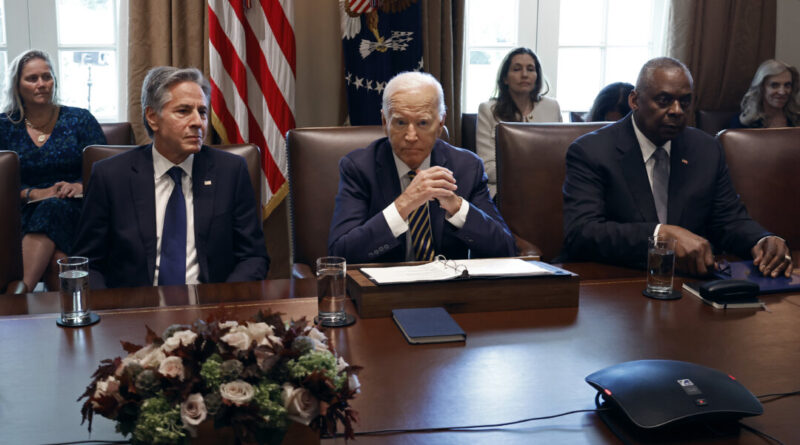Biden Administration Calls on Israel to Enhance Humanitarian Conditions in Gaza
The Biden administration has cautioned that U.S. policy towards Israel could be influenced by the humanitarian situation in the Gaza Strip.
President Joe Biden’s administration has issued a fresh warning to Israel regarding the need to improve humanitarian conditions in the Gaza Strip amid ongoing operations by Israeli forces.
In an Oct. 13 letter to Israeli Defense Minister Yoav Gallant and Strategic Affairs Minister Ron Dermer, U.S. Secretary of Defense Lloyd Austin and Secretary of State Antony Blinken conveyed the message, which was initially intended to be a private diplomatic communication but was leaked to the media.
State Department spokesman Matthew Miller confirmed the letter’s contents during an Oct. 15 press briefing, revealing concerns that Israel has not maintained support for humanitarian aid to Gaza, resulting in a significant decline in assistance levels.
Moving forward, Miller noted that Blinken and Austin emphasized the necessity for Israel to increase humanitarian aid levels to Gaza from its current low points.
The Biden administration had previously raised similar concerns regarding Israel’s approach to humanitarian issues in Gaza in April, with Miller stating that while some progress was made initially, sustained improvements have not been observed in recent months.
Images of the letter were shared by an Axios reporter on X, depicting a 30-day deadline for Israel to enhance humanitarian conditions in Gaza, or potentially face consequences regarding U.S. policy under NSM-20 and relevant U.S. law.
NSM-20 refers to a presidential policy memorandum implemented by Biden in February, reinforcing the requirement for countries receiving U.S. arms transfers to commit to facilitating U.S. humanitarian assistance efforts. Additionally, the Leahy Law stipulates that the U.S. government cannot provide military aid to foreign military units suspected of human rights violations.
While Miller refrained from specifying potential repercussions if Israel fails to address the humanitarian concerns outlined in the letter, other officials like Pentagon spokeswoman Sabrina Singh and National Security Council spokesman John Kirby also declined to elaborate on possible consequences.
Israeli responses to the letter sent by Austin and Blinken were not immediately available as of the publication time on Tuesday.
The letter emphasizes the need for Israel to allow a minimum of 350 truckloads of humanitarian supplies to reach Gaza daily, coordinate with humanitarian organizations, and implement ceasefires in Gaza to facilitate safe humanitarian deliveries.
Furthermore, Blinken and Austin urged Israeli forces to permit internally displaced refugees to move inland during the winter season and cease isolating parts of northern Gaza to improve overall conditions in the region.
The warning letter coincided with reports of Israeli military leaders considering a new strategy in Gaza targeting Hamas, a designated terrorist organization. The proposed “Generals’ Plan” entails giving civilians a deadline to vacate designated areas in northern Gaza, with those remaining at risk of being targeted or cut off from essential supplies.
Reflecting on the plan during an Oct. 9 press briefing, Miller labeled it as “absolutely unacceptable,” signaling the U.S.’s opposition to such tactics.
U.N. officials recently reported a decline in aid entering Gaza, with Israel denying any closure of aid crossings to the north. The ongoing conflict between Israel and Hamas, which started in October 2023, has resulted in significant casualties and humanitarian challenges in Gaza.
The Associated Press contributed to this article.



